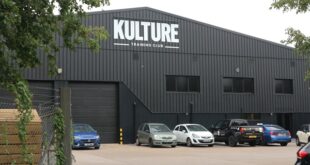The first time a young Daniel Křetínský visited Rome he stayed in a hostel 40 kilometres outside the city to save money. A few decades later, the Czech billionaire criss-crosses Europe in a private jet regularly, as one of the continent’s most prolific dealmakers.
The 47-year-old’s fortune has doubled to more than $10bn in the past year, according to estimates by Forbes and people with knowledge of his business, as the energy crisis supercharged profits at his power, gas and coal businesses.
He is now seeking to deploy the windfall to accelerate his group’s expansion into media, logistics and retail, building on a string of recent transactions in Germany, the UK and especially France.
An avowed Francophile, Křetínský has taken an interest in many of the country’s highest-profile active deals as he gradually sheds his outsider status. Since 2018, he has snapped up power plants and magazine titles such as Elle and Marianne, while building stakes in newspaper Le Monde, broadcaster TF1 and electronics retailer Fnac-Darty.
“He’s a builder, not a financier . . . he wants to build something long term that produces products and services,” said Denis Olivennes, an adviser who presides over CMI France, the French arm of Křetínský’s company Czech Media Invest. “He’s not a speculator.”
Some might question that characterisation. Křetínský built his empire by scooping up overlooked businesses on the cheap, often using external financing. Its backbone was a set of unloved, often carbon-intensive businesses that helped turn his Prague-based energy group EPH into a sprawling conglomerate with €30bn in assets and with revenues that nearly doubled to €37.1bn last year.
Křetínský has a long way to go to fulfil his ambitions outside energy. EPH generated the vast majority of his empire’s more than $40bn in revenues last year, according to people close to the business.
A football fanatic who owns AC Sparta Prague and in 2021 bought a 27 per cent stake in English Premier League club West Ham United, the former lawyer was described as sharp, strategic and detail-oriented by people who know him.
In France, Křetínský is in exclusive talks to buy publisher Editis from billionaire Vincent Bolloré’s media group Vivendi, and has floated the idea of taking over the declining IT services business of Atos in a spin-off deal — with a cheque for several hundred million euros attached to finance a turnround.
His most recent pitch in the country is to lead a more than €1bn capital injection into deeply indebted food retailer Casino, in which he is already the second-biggest shareholder. If successful, it could wrest control of the group from founder Jean-Charles Naouri, who has resisted previous deals that would have loosened his grip.
Křetínský receives advice in the country from figures including Olivennes, a media veteran with experience in retail as well as in navigating France’s halls of power, and Jean-Michel Mazalerat, who runs the French subsidiary of his energy company.
“Every time there is a big bid in France, whether it is Editis or Casino, he’s there,” said one French investor. “He bought his way into the establishment and it’s working.”
Křetínský declined to comment.
Born in 1975 in the Czech city of Brno to a professor and a judge, Křetínský learnt French as a schoolboy and travelled to France on exchange programmes. After beginning his university education in his hometown, he continued his legal studies in Dijon. “There’s a sentimental link there,” said one adviser.

Following a stint as a junior lawyer in Brno, in 1999 Křetínský joined J&T, an investment group founded in Slovakia, and quickly rose to become a partner and noted dealmaker. After buying a German coal company in 2009, J&T decided to spin off its energy assets into a new structure, EPH, granting him a 20 per cent stake in the venture.
His nose for a deal confirmed, Křetínský went on to lead lucrative acquisitions in central and eastern Europe, first in energy infrastructure then in power generation, eventually assuming control of EPH. He also forged ties with the late Petr Kellner, one of the Czech Republic’s richest men and the father of Křetínský’s future partner Anna Kellnerová, an Olympic showjumper.
“I was not surprised that he has become a successful entrepreneur . . . He does not waste time on things that are not important to his goals,” said Jiří Gottweis, who employed Křetínský at his Brno law firm.
Křetínský’s energy portfolio expanded rapidly with the acquisition of assets including power plants in the UK from Centrica and in Italy from Eon, as EPH became one of the biggest power suppliers in Europe.
His deals have not come without controversy. One of his early successes was securing a monopoly on Slovakia’s gas storage operations in a co-ownership deal with the Slovak government that included a pipeline company that transmits Russian gas — a connection that raised eyebrows when he first started investing in western Europe.
Gary Mazzotti, chief executive of EP Infrastructure, whose assets include Křetínský’s Slovak gas business, said the businessman’s decisions were based on pragmatism.
“People get obsessed with Russian risk but at the end of the day people here need to eat, sleep and have energy,” he said. “So if it comes from Russia, OK, but if not Europe can find alternatives. I know the story is whether we can survive without Russia but the reality is that we already have been.”
In Germany, Křetínský became known as a “coal baron” after taking over a number of coal-fired power plants as well as mines producing lignite, a highly polluting variety of the fuel.
“His realisation was that a 40 per cent renewable goal by 2040 was probably not realistic, and even then 60 per cent is still going to be fossil-based power,” said a person who has worked with him on energy projects. “Meanwhile, everyone rushed into renewables so returns were very low. When everybody is rushing into one side of the market, he’s playing the other side.”

For Mazzotti, “Daniel is a realist . . . someone who understands how long processes will take . . . He invests in common sense even if that common sense is sometimes not palatable”.
EPH said this month that it would split its German assets into a separate entity “to constructively negotiate with the German authorities on a phaseout of coal-fired power plants by 2030”.
By the mid-2010s, Křetínský was beginning to look beyond energy for other undervalued sectors. He landed on retail and logistics, which had struggled with the rise of online shopping, and media, where the internet had disrupted business models.
As well as Fnac Darty, his retail portfolio includes stakes in German wholesaler Metro as well as US sneaker chain Foot Locker and UK grocer J Sainsbury.
His 2018 investment in Le Monde, viewed as a pillar of the French establishment, ruffled feathers among the paper’s journalists and shareholders. While Křetínský had already snapped up radio stations in eastern and central Europe and magazine titles from French group Lagardère, buying into France’s biggest daily newspaper brought national attention and scrutiny.
“The view at Le Monde is that Daniel doesn’t count or doesn’t exist,” said one senior insider at the paper.

CMI France, his French media group had €220mn in annual revenues, according to people with knowledge of the business, a figure that could rise substantially if the Editis deal goes through. “Then we start to become a size of group that is interesting, with about €1bn in revenues,” a person with knowledge of the business said.
Further media deals were likely, according to people close to Křetínský. He had also cast his eye further afield, at one point looking to buy UK broadsheet The Telegraph before abandoning the project, the people said.
Not all of his investments have met with immediate success, however, including his 25 per cent stake in the parent company of the UK’s Royal Mail. But associates said Křetínský tended to take a long-term view on investments.
By diversifying, “he wants to create an enterprise equivalent to his energy interests”, said one of his advisers. “Keep in mind he’s only 47. By the time they’re as mature as his energy business he’ll be 60. Time is on his side. It’s a sort of second career, a second stage in the development of his group.”
Additional reporting by Leila Abboud
Source link



